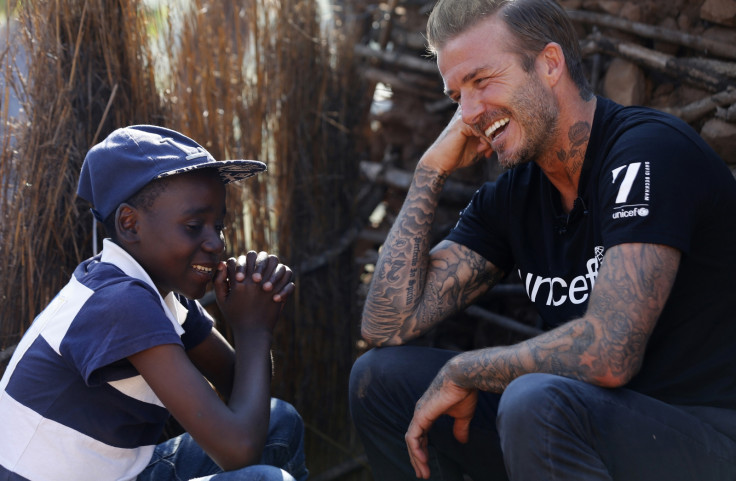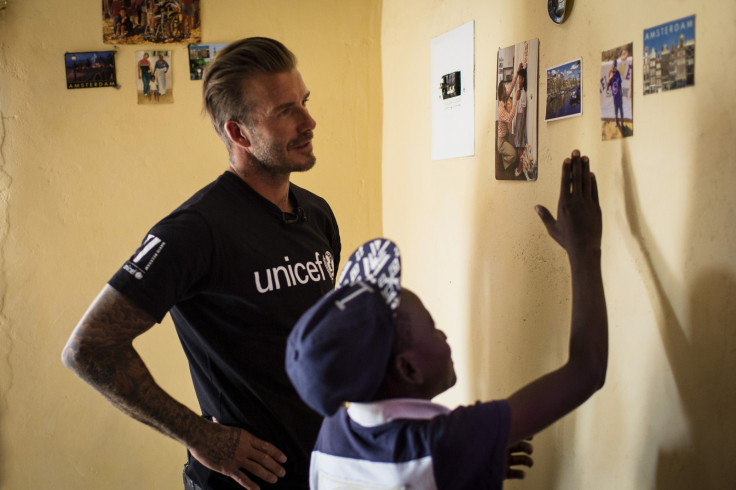David Beckham shares tender moments with children in Swaziland during Unicef visit

Former footballer and Unicef Goodwill Ambassador David Beckham visited Swaziland on 7 June to view how 7: The David Beckham UNICEF Fund was helping the organisation support and protect HIV-positive children.
He witnessed first-hand how a severe drought was taking a toll on the already-weak immunity of families and children who have been infected by HIV. Beckham met mothers and children who are living with HIV in some of the poorest homesteads in Lubombo and Shiselweni regions.
"Last year I launched my own fund with Unicef because I wanted to help build a safer world for children. I feel very proud to be in Swaziland to see how the money raised through the 7 Fund is helping to keep vulnerable children affected by HIV and AIDS healthy and safe," he said.
"Many of the children I met, some of whom were the same age as my own children, had lost one or both parents to AIDS and are themselves now living with HIV. As a father of four, it was hard to hear their stories about the daily challenges they face, which are now being made so much worse by this devastating drought."
Over the next three years, the 7 Fund is committed to contributing 27% of Unicef Swaziland's annual budget for HIV/AIDS.
"Children who are already incredibly vulnerable because of HIV are now at risk from a new crisis that could have a devastating impact on their lives. Across Eastern and Southern Africa millions of children are at risk from hunger, water shortages and disease," he added, referencing one of the worst droughts in recent history.
"I am speaking out for these children to make sure they are not forgotten at a time when they so desperately need our help. I am urging the global community to do all it can to help Unicef deliver the life-saving food, medicine and clean water that these children so desperately need," he said.
The kingdom of Swaziland has the highest rate of HIV infection in the world. "People living with HIV are extremely vulnerable to food insecurity, malnutrition and income shocks. If we are to protect the huge gains we have made on HIV prevention and treatment across the region, then it is imperative that the international community urgently comes forward to limit the effects that this entrenched drought is having on many of the continent's children and families," Leila Gharagozloo-Pakkala, Unicef regional director for Eastern and Southern Africa, explained.

© Copyright IBTimes 2025. All rights reserved.






















